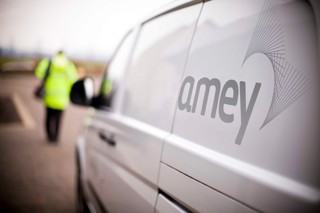The following article was published in the September 24 issue of Fleet News. Read the full article.
The economic impact of the Covid-19 pandemic has not yet translated into a shift in the average car replacement cycles for the Fleet200. It remains the same as last year at 46 months, based on 102 responses. However, 118 companies gave a figure last time and the make-up of the Fleet200 is not identical this year so a comparison is difficult.
It is also worth bearing in mind that the current survey results were gathered between mid-March and June and those answering at the start of the UK lockdown (March 23) will have a different perspective to those replying a month or two later.
Traditionally, fleet operators have extended replacement cycles during an economic downturn and this can become a permanent change. The 2008-to-2009 recession led many businesses to shift from replacing company cars at three years/60,000 miles to four years/80,000 miles.
With the UK officially in recession as of last month when Office for National Statistics (ONS) figures showed two consecutive quarters of economic decline, with a record fall of 20.4% in the second quarter, history could repeat itself.

Since the start of lockdown, leasing companies have been supporting fleet customers with informal contract extensions, mileage adjustments and payment holidays.
When Fleet News asked fleet operators in May whether they had extended their lease contracts, more than a third (37%) had, with most of those favouring a rolling month-by-month extension. A small number had chosen to extend by either three, six or more than six months.
Longer replacement cycles were not the most popular option when fleet operators were asked about the long-term impact of Covid-19 on their fleet, however.
Greater use of video conferencing, budget constraints/financial pressure and reduced mileage for company cars were seen as the main impacts, followed by fewer company cars, less use of public transport, longer replacement cycles, more flexible rental/short-term contracts, greater use of telematics and increased mileage for company vans.
Fleet operators appear to be adopting a ‘wait and see’ approach, particularly with many different factors at play, including the winding down of the Government’s Coronavirus Job Retention Scheme, which ends on October 31.
Whether company car drivers who have been working from home return to the office or change to becoming home-based permanently with fewer face-to-face meetings will have a bearing on how long company cars are kept for and at what mileage term or, indeed, if the employee retains a company car. A job-need driver could see their mileage dip below the traditional 10,000 miles threshold that many businesses set for a company car, for instance.
However, if a car is provided for recruitment and retention purposes and is primarily a ‘perk’ rather than job-need, businesses are unlikely to remove it unless they face severe financial pressure.
They may also choose to stick with the same replacement cycles as an older car could prove less attractive to employees.
LKQ Euro Car Parts, which sits at number 19 in this year’s Fleet200 with 3,258 vehicles, provides company cars primarily to field-based and branch management roles as part of their recruitment and retention packages.
 The cars are replaced at four years or 100,000 miles and Tony Shearer, branch operations director, who has overall responsibility for the fleet, has no plans to increase this. “I think most people after four years of having one car normally want to change,” he says.
The cars are replaced at four years or 100,000 miles and Tony Shearer, branch operations director, who has overall responsibility for the fleet, has no plans to increase this. “I think most people after four years of having one car normally want to change,” he says.
The length of the car replacement cycle also depends on the nature of the business.
The Volkswagen Group has the shortest company car replacement cycle of the Fleet200 companies that responded to this year’s survey (as it did last year) with cars kept for six months with an average of 9,000 miles.
Andy Lamb, group company fleet operations manager, says: “The rationale for the relatively low holding for our car fleet is in the nature of being a car importer.
“To ensure a supply of good quality, relatively new used cars to our retailers, as well as ensuring our employees are familiar with all the latest features of our new cars, we manage a relatively fast turnover of cars for staff. Our retailers then benefit from quality used vehicles to attract customers into their premises too.”
He adds that this is “relatively common across all car manufacturers, and not just here in the UK, with perhaps some local variations – with the domestic manufacturers having some additional differences due to their own local needs and local manufacturing cost base”.
He does not believe that an increase in home working will change the replacement cycle although Volkswagen “continues to look at holding periods and mileage in order to fine-tune the benefits of the scheme to all participants”.
While it has the shortest replacement cycle, the Volkswagen Group does not have the lowest annual business mileage. NHS Blood and Transplant, UK Power Networks and Amey Fleet Services all have lower averages (7,000, 7,250 and 7,500, respectively).
 Julie Davies, group fleet and plant compliance manager at Amey, explains that even prior to the Covid-19 pandemic the business had a strategy in place to ask employees to think about the environmental impact of the vehicle fleet and to reduce travel where possible by using Skype, Microsoft Teams or video conferencing.
Julie Davies, group fleet and plant compliance manager at Amey, explains that even prior to the Covid-19 pandemic the business had a strategy in place to ask employees to think about the environmental impact of the vehicle fleet and to reduce travel where possible by using Skype, Microsoft Teams or video conferencing.
This sits alongside other green and road safety measures such as monitoring driver behaviour, fuel usage and type, using telematics, eco driver training and ensuring drivers do not carry unnecessary loads.
Similarly, local authorities and other public sectors fleets such as Defra Group Fleet Services were trying to discourage business journeys prior to the pandemic. The Environment Agency, which falls within Defra Group Fleet Services, has had a travel hierarchy in place for a number of years. The hierarchy encourages employees to consider teleconferencing or web meetings in the first instance.
Average replacement mileage for the Fleet200 this year is 81,157 miles with average annual business mileage at 17,481 accounting for the vast majority of the 21,171 total average annual mileage.
Devon & Cornwall Police and Dorset Police has the longest car replacement cycle at 120 months (10 years) and 150,000 miles, although that gives it a below average annual business mileage of 15,000, while Police Scotland and West Yorkshire Police replace their cars at 120,000 miles over 48 months for a much higher annual average of 30,000. Fleet operators that outright purchase also tend to keep vehicles longer and all three police forces buy virtually all their cars.
Of the private sector organisations in this year’s Fleet200, specialist engineering and construction company Murphy Plant has on paper, the highest replacement mileage at 150,000. However, fleet manager Tony Murphy explains that it is not the case that employees are made to keep the vehicles until they have reached 150,000 miles. It has a four year or 150,000 miles limit, whichever comes first.
“We have some employees that do very high mileage (or at least used to) so, if they declare the annual mileage at 40,000, it would then reduce the lease term to meet the 150,000 miles,” he says.



















Login to comment
Comments
No comments have been made yet.